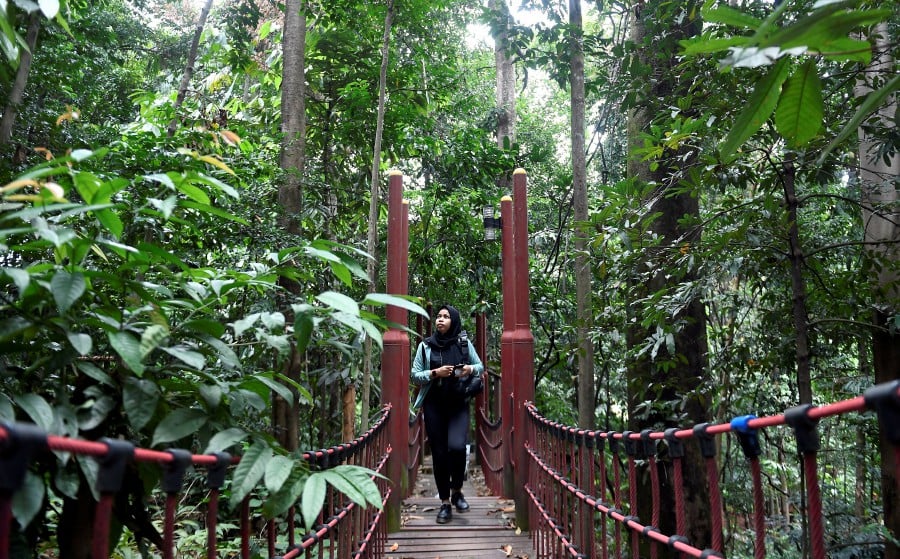




Many may not be aware that biodiversity is a critical element in the jigsaw puzzle of life.
Those who have watched the movie A Bug’s Life would appreciate the fact that insects and other pollinating organisms contribute to the sustenance of agriculture and farming.
Without them, pollinating at their speed is extremely challenging.
We saw the case of the oil palm where weevils improved the pollination process tremendously.
Studies have confirmed that all plants and animals, which form nature’s biodiversity, play an important role in delivering the ecosystem services that we need to produce food, conserve water and even contain the spread of diseases.
This explains why the world is concerned about activities that compromise biodiversity.
I recently attended a lecture by Tan Sri Zakri Abdul Hamid, who holds the Tun Hussein Onn Chair in International Studies at the Institute of Strategic and International Studies Malaysia.
As the fifth holder of the chair, he delivered a thought-provoking talk on The Politics of Biodiversity Loss: International Response and Malaysia.
There were more than 200 participants, including many close family members of the late Hussein Onn, the third prime minister.
Many participants could be considered as hardcore biodiversity activists.
Many were from the science fraternity, academics and some journalists.
All came away enlightened with the urgency to address biodiversity.
Zakri put his message clear, which was not surprising coming from someone who has spent more than three decades involved in the international diplomacy of biodiversity.
As the founding chairman of the International Panel on Biodiversity and Ecosystem Services (IPBES), he shared the latest statistics on the state of biodiversity loss in the world.
IPBES is the equivalent to the UN climate change panel, the United Nations Framework Convention on Climate Change.
The data he shared showed that the losses through poaching and other incursions by humans were staggering. In some species, close to 70 per cent has been wiped out.
The Malaysian tiger population, for example, is now numbered at not more than 200.
Zakri shared how India was having a programme to conserve its tiger population.
He lamented that we were still far behind. It is not easy to convince people why more resources are needed in tiger conservation since tigers are also seen as a menace to farmers who lose livestock to displaced tigers.
Maybe tiger scientists need to show more evidence on the role tigers play in the biodiversity balance.
Biodiversity conservation also has implications on business. The story surrounding the threat of an import ban by the European Union (EU) on our palm oil is a case in point.
As a result of intensive pressure from consumer groups blaming oil palm cultivation for the decline in the orang utan population, the EU imposed rulings that restrict palm oil import.
Though the evidence shows otherwise, we have not been able to communicate the real situation.
Zakri did touch on the worrying development that we are not investing enough to communicate our facts internationally.
We used to be more active in the past where delegates were sent in good numbers to negotiate and contribute to the development of the international standards on biodiversity. This needs to change.
What became clear during the question-and-answer session was that we should take biodiversity concerns seriously.
We should participate in more international forums on biodiversty where the negotiations and in his words, horse trading, take place.
The art of diplomacy is central to all that. That is why we should train enough people in science diplomacy and communication to participate in such forums.
The new International Institute for Science Diplomacy and Sustainabilty at UCSI university, helmed by Zakri, is a positive step not only for Malaysia but also the region.
Many see it as a strategic initiative to build the right talent for the region. It will strengthen the resolve to uphold the global call for biodiversity conservation.

